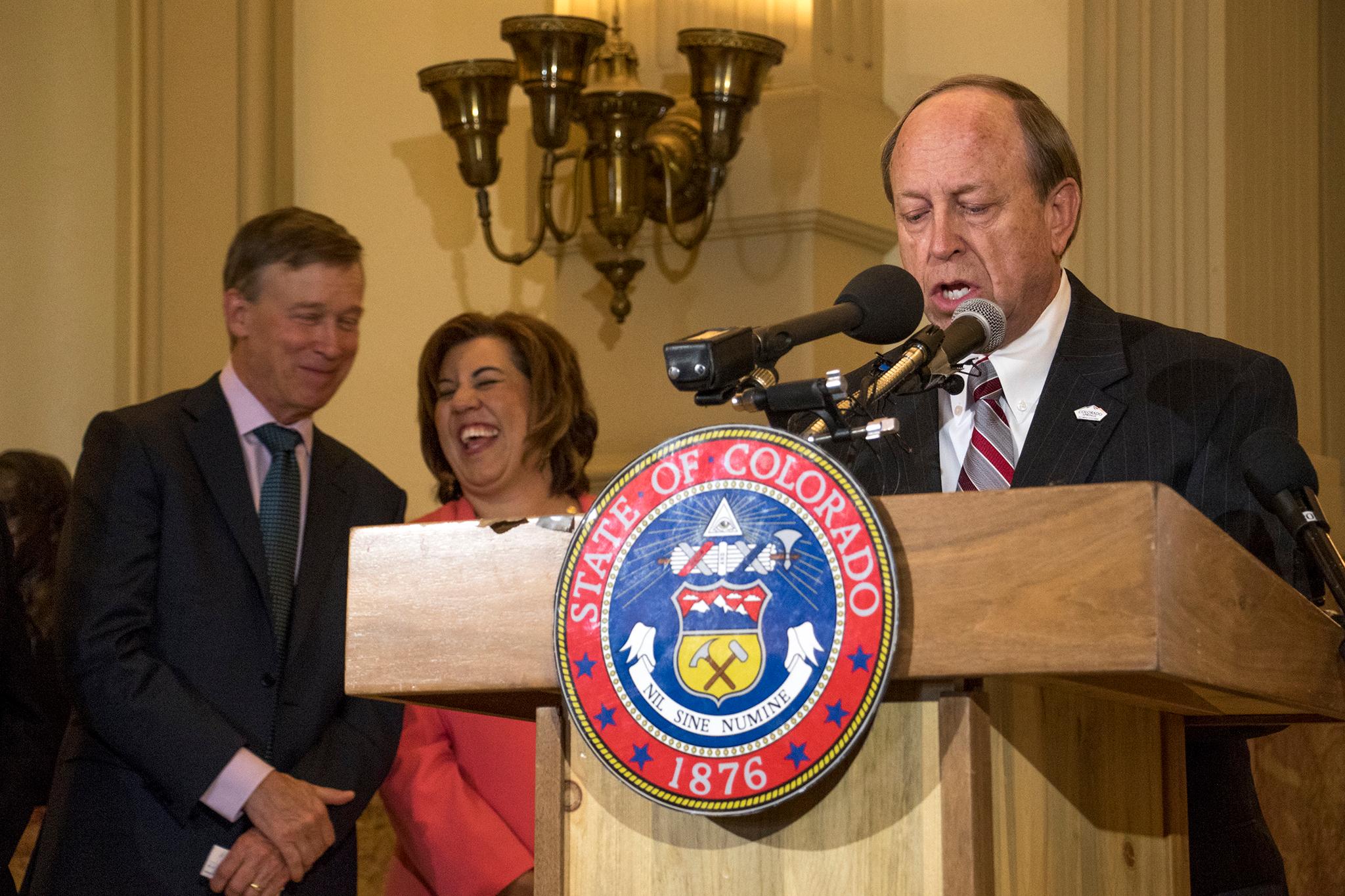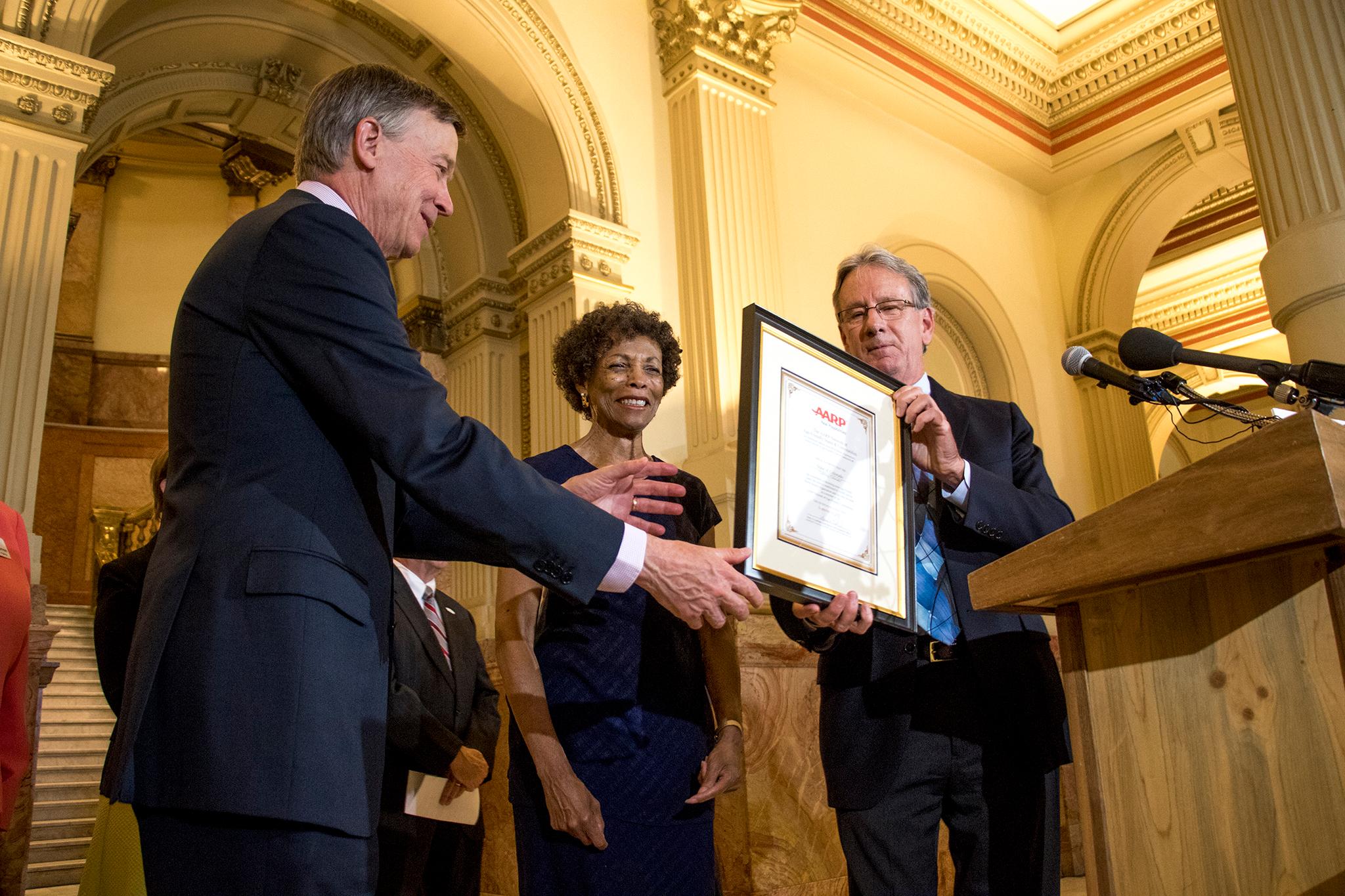Colorado can add another national accolade to its award case after Gov. John Hickenlooper on Tuesday accepted recognition from AARP for the state’s commitment for encouraging more age-friendly communities.
Hickenlooper was joined by AARP Colorado state director Bob Murphy and others to introduce Lifelong Colorado, an initiative aimed at addressing the needs of the state’s aging residents.
The state joined New York and Massachusetts as just the third state to join AARP’s Network of Age-Friendly States and Communities.
Wade Buchanan, the state's senior advisor on aging, said Colorado Springs is among the state's model age-friendly communities. He said creating these kinds of communities isn't necessarily about creating a list and then crossing stuff off it.
"Age-friendly is really about the process they engage in," Buchanan said. "It's not about do this and this and this ... every community is different."
The recognition is part of the non-partisan and nonprofit organization’s efforts to address the millions of people who want to age in place in communities they call home. Earlier this year, the AARP named Colorado the second best state to retire after Florida.
AARP’s initiative pushes for communities to plan for this through an “age-friendly lens,” Murphy said.
“One in three Americans are aged 50 years or better, as I like to say,” Murphy said. “By 2030, one in five will be aged 55 or better.”
Age-friendly policies include paying attention to zoning laws that could prevent situations involving multiple, unrelated senior citizens from living in the same house. It also means ensuring there's housing available for residents who want to age in place but don't necessarily want to continue in their home, due to navigation concerns or those seeking to downsize.

City design is another big factor.
Buchanan said this could mean ensuring there are enough walkable paths in parks or ensuring crosswalk signals provide enough time for someone who needs a little extra time to cross.
Murphy said when communities start planning on how to address residents who want to age in place, they usually start looking at housing, transportation, walkability, civic engagement and social opportunities, community health and employment opportunities. The planning is completed by community stakeholders like residents, businesses and local municipal figures.
“When all is said is done, and that planning is done, what they’ve created in their age-friendly community is one that is livable for people of all ages, and that’s what that’s all about,” Murphy said.
Hickenlooper said the approach behind Lifelong Colorado will start from the bottom up, with local municipalities setting the precedent, to create more communities that are supportive of older adults. It’s part of a goal to help the state become the healthiest in the nation and ensure residents of all ages are addressed.
“I think this will become our next horizon and something that we will once again do better than everyone else,” Hickenlooper said, adding jokingly, “It’s not the other states' fault that they have to follow us.”
Within a couple decade, Hickenlooper said one in four Coloradans will be over 60. He said it’s a good problem to have and it’s a figure that includes some people moving here and others not wanting to leave.
“I, of course at the age of 66, believe that age is nothing but a number,” Hickenlooper said. “But this is a somewhat radical shift in the demographics of Colorado and America, but it’s one that’s permanent. We’re going to continue to live longer as we make further medical advancements.”
Murphy said AARP has nearly 700,000 members in Colorado, or about 12 percent of the state’s population.
A release from Hickenlooper's office showed there are already 25 local communities, including Denver, that have established age-friendly policies. The initiative will add 20 more communities by the end of the year 100 more within the next five years.
Co-chair for Lifelong Colorado Lt. Gov. Donna Lynne said people often hear about the impact millennials will have on society. But people over the age of 60 are the population that’s increasing the most, Lynne added, and have needs that will need to be addressed.
“Lifelong Colorado is going to be about learning and not just directing,” Lynne said. “It is going to be about helping and understanding the diversity of issues in our communities.”













